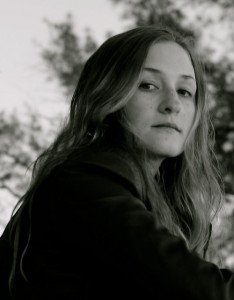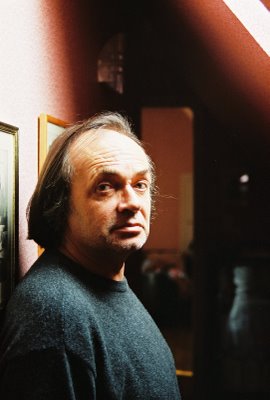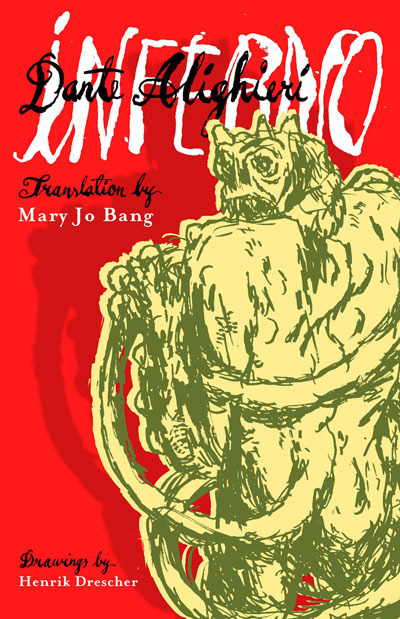A selection of Pierre Peuchmaurd poems translated by E.C. Belli—four poems from The Nothing Bird and “Bull,” a Circumference exclusive.
Taureau
by Pierre PeuchmaurdLe vent est long
le vent court
le vent hurle
Le vent hurle, pas le taureau
le monde tourne, pas le taureau
il pleut, pas le taureau
la pluie est rouge, pas le taureau
tu mets ton chapeau, pas le taureau
tu enfiles tes gants, pas le taureau
la pluie rouge, l’herbe grise
les mains qui glissent sur l’arc-en-ciel
les freux les fraises les demoiselles,
pas le taureau
l’escarcelle, pas le taureau
le taureau est un sac
le héron vole, pas le taureau
le jour du mois, pas du taureau
la bave des filles, pas du taureau
je est un autre, pas un taureau
un souffle, pas un taureau
la neige aux doigts, pas un taureau
je
mets la littérature dans une corne,
pas le taureau
dans l’ombre, pas le taureau
le taureau est noir, il est blanc
le taureau est un frac
le soir tombe, pas le taureau
l’amour tangue, pas le taureau
tu touches ta peau, pas le taureau
tu noies tes yeux
tu fouilles ton sexe, pas le taureau
le vent hurle, pas le taureau
le vent flambe
le taureau est un rire un ange un tréteau d’or
l’amour tangue, pas le taureau
l’amour remonte les allées de sa mort,
pas le taureau
l’amour meurt, pas le taureau
il surgit du taureau
l’amour meugle, pas le taureau
le taureau est un chant d’oiseau
le héron vole la main passe,
pas le taureau
qui chante ailes arrachées
qui chante le ventre ouvert
le taureau pèse cent ans de corde,
pas la corde
la corde pèse le pendu, pas le taureau
les ailes, pas le taureau
arrachées, le taureau
le taureau est une jambe
le taureau est l’aubier sous l’écorce du taureau
tu est toi, pas le taureau
tu es là, pas le taureau
les chiens dansent, pas le taureau
les nains dansent sur les chiens, pas le taureau
j’ouvre la fenêtre, pas le taureau
le vent est long le vent court
la nuit aboie au ciel, pas le taureau
le taureau est le jour planté au cœur du jour
Bull
by Pierre PeuchmaurdThe wind is long
the wind runs
the wind screams
The wind screams, not the bull
the world turns, not the bull
the rain falls, not the bull
the rain is red, not the bull
you put on your hat, not the bull
you slide on your gloves, not the bull
red rain, grey grass
those hands slipping along the rainbow
those rooks those strawberries those damsels,
not the bull
the leather pouch, not the bull
the bull is a bag
the heron flies, not the bull
your day of the month, not the bull’s
the drool of girls, not the bull’s
I am another, not a bull
a breath, not a bull
that snow along our fingers, not a bull
I
pour writings into a horn
not the bull
in the shade, not the bull
the bull is black, he is white
the bull is a tailcoat
evening falls, not the bull
love reels, not the bull
you stroke your skin, not the bull
you drown your eyes
you burrow in your cunt, not the bull
the wind screams, not the bull
the wind’s ablaze
the bull is a chuckle an angel a gold trestle
love reels, not the bull
love sails up death’s alleyways,
not the bull
love dies, not the bull
it springs from the bull
love moos, not the bull
the bull is a birdsong
the heron flies the hand passes,
not the bull
that sings wings ripped
that sings with intestines showing
the bull weighs a hundred years of rope
not the rope,
the rope weighs the hanging, not the bull
the wings, not the bull
ripped, the bull
the bull is a leg
the bull is sapwood under the bark of the bull
you are you, not the bull
you are here, not the bull
the dogs are dancing, not the bull
the dwarves are dancing on the dogs, not the bull
I crack the window, not the bull
the wind is long the wind runs
the night barks at the sky, not the bull
the bull is the day planted into the heart of the day
translated from French by E.C. Belli

 Oh, I’m hopeless. Love, death, and the carnal! I end up with terrible crushes on projects. And writers. They are often formally innovative and
Oh, I’m hopeless. Love, death, and the carnal! I end up with terrible crushes on projects. And writers. They are often formally innovative and 